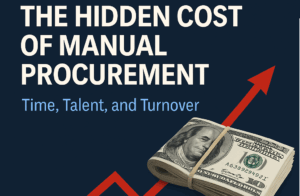In the modern global economy, supply chains have become increasingly complex and interconnected, leading to a heightened need for effective supply chain risk management. As disruptions, uncertainties, and unforeseen events become more common, businesses are turning to advanced technologies to enhance their risk mitigation strategies. Among these technologies, machine learning has emerged as a powerful tool that can revolutionize the way supply chain risk is identified, assessed, and managed. This article explores the pivotal role of machine learning in supply chain risk management, highlighting its benefits, applications, and potential to drive resilience in today’s intricate supply chain networks.
Understanding Supply Chain Risk Management
Supply chain risk management involves identifying potential disruptions, assessing their potential impact, and developing strategies to mitigate and recover from them. These risks can range from natural disasters and geopolitical uncertainties to supplier bankruptcies and demand fluctuations. Effective risk management ensures business continuity, minimizes losses, and maintains customer satisfaction.
The Power of Machine Learning
Machine learning, a subset of artificial intelligence, equips systems with the ability to learn from data and improve over time without being explicitly programmed. Its capacity to analyze vast amounts of data, detect patterns, and make accurate predictions offers valuable insights for supply chain risk management.
Benefits of Machine Learning in Supply Chain Risk Management
- Predictive Analytics: Machine learning algorithms can analyze historical data to predict potential risks and disruptions. This enables businesses to proactively identify vulnerabilities and take preemptive measures to mitigate them.
- Real-time Monitoring: Machine learning can continuously monitor various data sources, such as weather forecasts, geopolitical events, and market trends, to provide real-time insights into potential risks. This enables rapid decision-making and adaptation.
- Scenario Analysis: Machine learning models can simulate various scenarios to assess the potential impact of different risks on the supply chain. This empowers businesses to develop effective contingency plans and make informed decisions.
- Supplier Risk Assessment: Machine learning algorithms can evaluate supplier performance and financial health, identifying potential risks related to quality, reliability, or bankruptcy. This helps in making informed supplier selection and management decisions.
- Demand Forecasting: Accurate demand forecasting is crucial for risk management. Machine learning algorithms can analyze customer behaviors and market trends to provide more accurate predictions, reducing the risk of overstocking or stockouts.
Applications of Machine Learning in Supply Chain Risk Management
- Supply Chain Network Optimization: Machine learning can analyze the supply chain network to identify inefficiencies, bottlenecks, and vulnerabilities. This allows for strategic adjustments to optimize the network and enhance resilience.
- Natural Disaster Prediction: Machine learning models can analyze historical data and weather patterns to predict potential natural disasters that could impact the supply chain. This enables businesses to make timely decisions to reroute shipments or secure alternative suppliers.
- Supplier Performance Analysis: Machine learning algorithms can assess supplier performance based on factors such as delivery times, quality, and compliance. This helps businesses identify potential risks and make informed decisions regarding supplier relationships.
- Fraud Detection: Machine learning can identify anomalies and patterns indicative of fraudulent activities within the supply chain, minimizing the risk of financial losses and reputational damage.
Machine learning’s ability to analyze data, predict outcomes, and drive informed decision-making has transformed supply chain risk management from a reactive to a proactive discipline. By leveraging the power of machine learning, businesses can enhance their resilience to disruptions, reduce uncertainties, and ensure business continuity. As supply chains continue to evolve and face increasing complexities, the integration of machine learning into risk management strategies is poised to become a cornerstone of successful and adaptive supply chain management.
The Perfect Planner Team is here if you have any questions about The Role of Machine Learning in Supply Chain Risk Management, and we offer a free consultation service. If you would like to connect with us on this article or any other topic, please message us on LinkedIn, shoot us an email at info@perfectplanner.io, visit our website at www.perfectplanner.io, or give us a call at 423.458.2979.
Author: Thomas Beil
Publication Date: May 9, 2024
© Copyright 2024 Perfect Planner LLC. All rights reserved.






